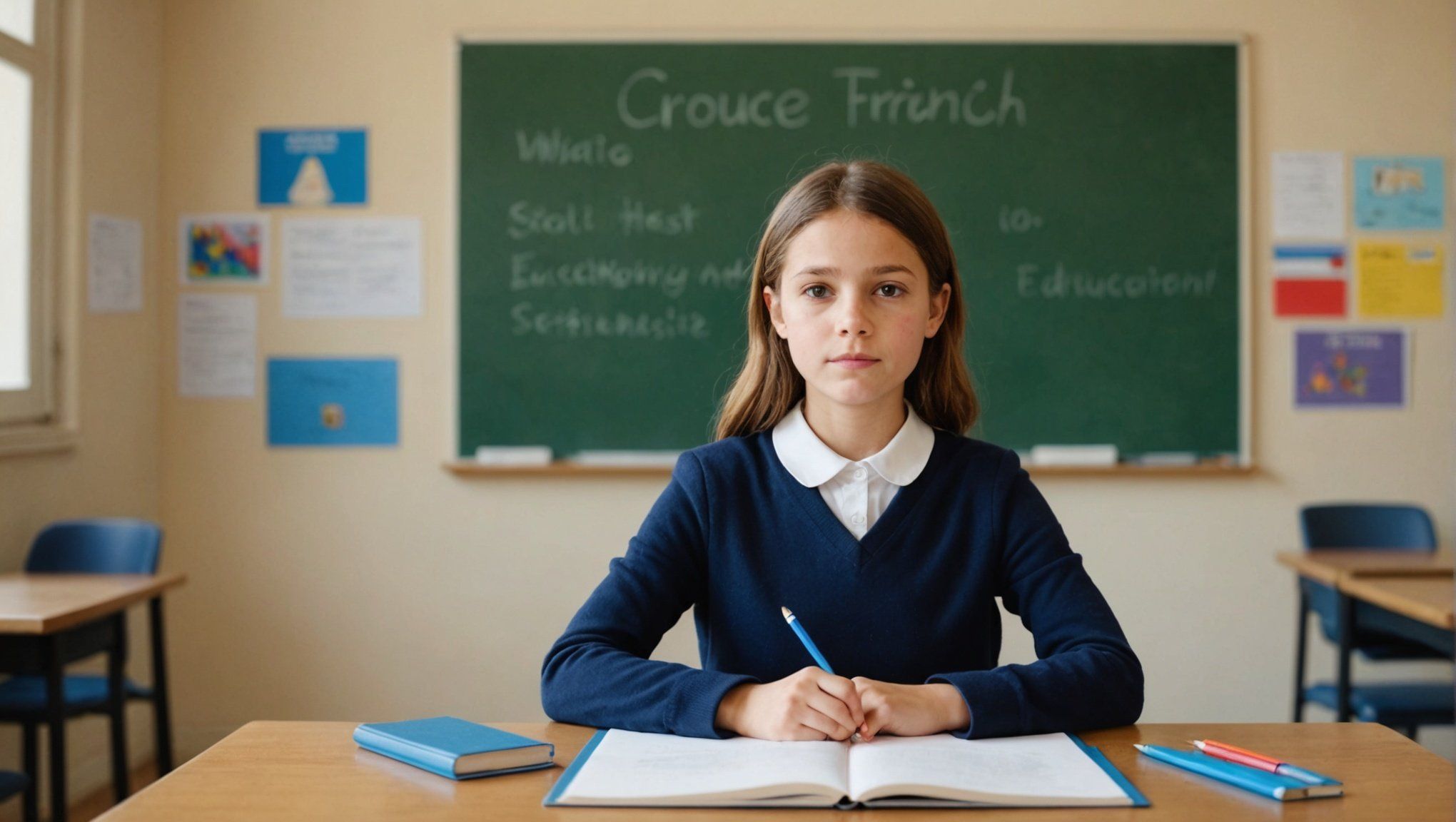Discover the inner workings of the French education system, from preschool to high school, by exploring its centralized structure and fundamental principles of secularism and free education. Learn how the baccalauréat opens the doors to higher education, from universities to prestigious grandes écoles. Finally, assess the differences between public and private education to make informed educational choices in France.
Structure of the French Education System
The French education system is structured into several levels, each with distinct characteristics. Here is an overview of the main educational levels in France: preschool, elementary school, middle school, and high school. This highlights the importance of choosing the best private school in Paris rather than a less prestigious public institution!

Preschool and Elementary School
Preschool welcomes children from the age of three. It plays a crucial role in developing young children’s social and cognitive skills. Nearly all children in France attend preschool, which prepares them for elementary school. Elementary school starts at the age of six and lasts five years, covering grades CP to CM2. Subjects taught include French, mathematics, science, and physical education.
Middle School and High School
Middle school is the first level of secondary education. It is mandatory for children aged 11 to 15 and concludes with the Diplôme national du brevet (DNB). Subjects become more diverse, including foreign languages and advanced sciences. High school follows middle school and spans three years for students aged 15 to 18. High school students can choose between general, technological, or vocational tracks, preparing them for higher education or entry into the workforce.
Key Features of the French Education System
The French education system is known for its centralization, managed by the Ministry of National Education. Secularism plays a fundamental role, ensuring public and free education that is religiously neutral. Compulsory education applies to all children residing in France, ensuring equal access to schooling. These principles are complemented by a strong emphasis on teaching quality and social inclusion, despite challenges posed by social inequalities.
The French education system continues to evolve to meet contemporary needs, integrating innovative teaching methods and modern approaches.
Secondary and Higher Education in France
The French Baccalauréat and High School Tracks
The French baccalauréat is a critical diploma marking the end of secondary education and opening the doors to higher education in France. High school students choose between several tracks: general, technological, or vocational. The general track is divided into three main specialties, allowing students to customize their learning. The technological track offers subjects focused on practical applications, while the vocational track directly prepares students for the workforce.
Higher Education Options
In France, higher education offers a wide range of choices, including French universities and grandes écoles. Universities provide a broad spectrum of disciplines, fostering research and innovation. Grandes écoles, on the other hand, are renowned for their selectivity and academic excellence, preparing students for prestigious careers. Other specialized institutions, such as art and engineering schools, further enrich the educational landscape.
Diversity in Educational Opportunities
The diversity of educational opportunities in France greatly influences students’ choices. Whether pursuing academic, technical, or artistic studies, every student can find a path suited to their aspirations. This variety contributes to a dynamic education system capable of addressing contemporary challenges and meeting individual learners' needs.
Comparison Between Public and Private Schools
In France, the public and private education systems have notable differences that influence the choices of parents and students. Public schools are state-funded, ensuring free education accessible to all. In contrast, private schools, though often under contract with the state, may charge tuition fees. These private institutions sometimes offer specialized programs or alternative teaching methods, attracting families seeking educational diversity.
The Role of the State and Funding
The state plays a crucial role in regulating private schools. Contracted institutions receive public funding, obligating them to adhere to certain programs and standards set by the Ministry of National Education. This collaboration ensures consistent teaching quality aligned with national objectives while allowing some pedagogical autonomy.
Choosing the Best Private School in Paris
When it comes to choose the best private school in Paris, several factors must be considered. Beyond teaching quality, educational assistance programs, such as scholarships or financial aid, can help ease costs for families. Evaluating the educational offerings and values of each institution is essential for making an informed choice.
